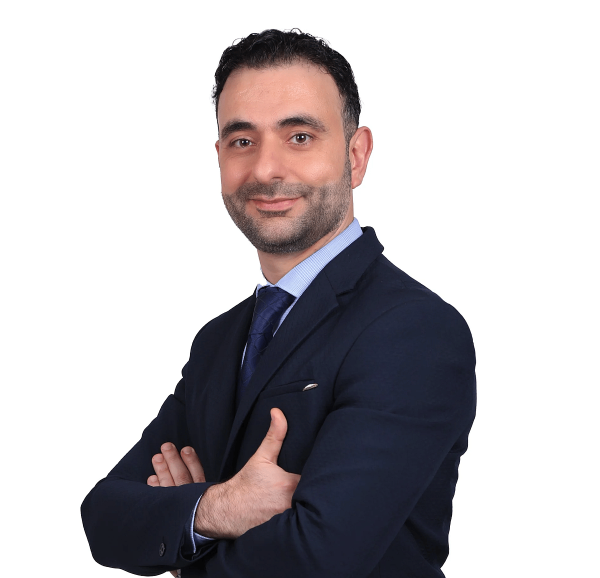
As UAE schools reopen after the summer holidays, many children are struggling with more than just heavy bags and early buses; they are battling sleep deprivation, doctors told Khaleej Times.
They said that late nights during the break, too much screen time, and irregular routines are leaving children tired and unfocused when they return to the classroom.
During the holidays, many children slipped into a pattern of staying up late and waking up late. Switching back to early morning school routines has disrupted their circadian rhythm — a biological process that regulates the body's internal clock.
Stay up to date with the latest news. Follow KT on WhatsApp Channels.
“When children suddenly switch from sleeping late to waking early, they struggle to adjust,” said Dr Abed Homsi, consultant paediatrician, Burjeel Day Surgery Centre, Al Reem Island. “This affects their energy levels and concentration during school mornings.”
The most common complaint parents bring to clinics is that children simply cannot fall asleep early. “They are used to screens, late-night meals, or being active close to bedtime. This makes it difficult for them to wind down,” added Dr Homsi.
Fatigue in classroomsDoctors warn that sleep-deprived children are not only cranky in the morning but also find it difficult to stay attentive in class.
Dr Babitha S, consultant pediatrician, LLH Medical Centre, Shabia, said that children who are sleep-deprived show difficulty concentrating in lessons, experience daytime fatigue, and may even perform poorly in school.

Dr Babitha S. Photo supplied by LLH Medical Centre.
“Lack of proper sleep can also weaken their immunity, making them more vulnerable to infections,” said Dr Babitha.
She highlighted that irregular routines and the added pressure of balancing homework with extracurricular activities further fuel sleep deprivation. “Parents often tell us their children struggle to manage everything once school starts, especially if they haven’t reset their sleep schedule.”
According to doctors, children aged 6–13 need about 9–11 hours of sleep per night, while teenagers need 8–10 hours. But many students are getting far less.
Dr Homsi advised parents to start adjusting bedtimes at least two weeks before school begins. “Move bedtime earlier by 30–60 minutes every few days until the child reaches a proper routine. This gradual change makes the transition smoother.”
Doctors also link poor sleep with weaker immunity. “Disturbed sleep lowers a child’s defenses, making them more vulnerable to viral infections and seasonal flu,” said Dr Homsi.

Dr Abed Homsi. Photo supplied by Burjeel Day Surgery Centre
Doctors recommend the flu vaccine for all school-going children. “Each year, we see a spike in flu cases as schools reopen,” said Dr Babitha. “The flu shot is the best way to reduce risk and prevent long absences from school.”
Tips for parentsHealthcare specialists recommend creating a consistent bedtime routine to help children wind down:
No screens at least one hour before bed.
Encourage calming activities such as a warm bath, brushing teeth, or reading a bedtime story.
Keep bedrooms dark, cool, and quiet.
Avoid sugary foods, caffeine, and heavy meals in the evenings.
Encourage outdoor play during the day so children feel naturally tired at night.
“Consistency is the most important factor. Bedtime rituals that begin 30–60 minutes before sleep help signal to the child’s body that it’s time to rest,” said Dr Babitha.
Along with poor sleep, doctors are also seeing a rise in digital eye strain among children. Long holiday hours spent on tablets, mobiles, and video games have led to more complaints of tired eyes and headaches.
“Yes, there has been an increase in digital eye strain and vision-related issues, especially after the long holidays when screen use tends to rise,” said Dr Babitha. “Screen time should be limited, and children should have regular vision checkups.”
Dr Homsi added that for very young children, especially those under two, screen time should be avoided entirely.
Resetting — a challengeFor parents, the struggle is real. Many admit it is a battle to reset their children’s schedules after weeks of late-night gaming, social media, and movie marathons. “During holidays, my son slept past midnight almost every day. Now, waking him at 6am is a nightmare,” said Faisal Ahmed, a father of two residing in Sharjah.
“My children used to sleep around 12pm every night during the holidays. And now putting them to sleep early has become troublesome. Their regular routine during the school days was around 9.30pm, and it is a bit difficult to bring them back to that routine,” added Ahmed.
Doctors advise that parents should be firm but gentle. “Bedtime should not feel like punishment, it should be part of a comforting routine,” said Dr Babitha.
UAE: As kids head back to school, here's what parents must know Back to school in UAE: Demand for car rentals rise by up to 40 per cent-
AIIMS gastroenterologist shares 8 best high fibre foods for gut health: Chickpea, chia seeds, oats, broccoli and more

-
Anti-Mullerian Hormone Test: What Is A Good AMH Level To Get Pregnant

-
Gynaecologist shares top 4 tips that can ‘help your body go into labour naturally’

-
Throat Cancer Symptoms: Sore Throat, Unusual Earache And 5 Other Warning Signs of Laryngeal Cancer

-
6 healthy ways to add honey to your diet: How to differentiate between raw and processed honey
